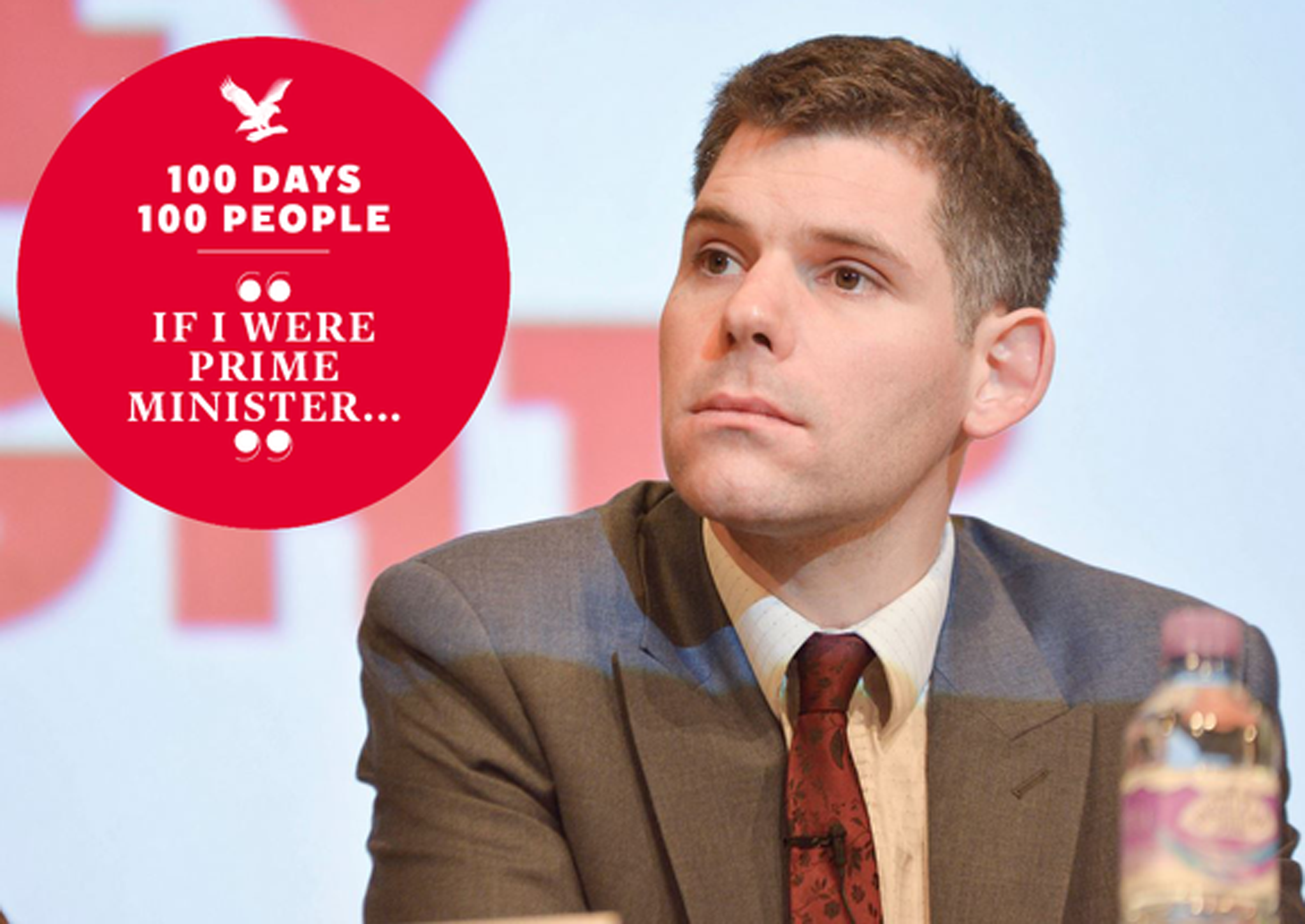If I were Prime Minister: British power would be carbon-free by 2030
Our series in the run-up to the General Election – 100 days, 100 contributors, but no politicians – continues with the General Secretary of the Fabian society


Your support helps us to tell the story
From reproductive rights to climate change to Big Tech, The Independent is on the ground when the story is developing. Whether it's investigating the financials of Elon Musk's pro-Trump PAC or producing our latest documentary, 'The A Word', which shines a light on the American women fighting for reproductive rights, we know how important it is to parse out the facts from the messaging.
At such a critical moment in US history, we need reporters on the ground. Your donation allows us to keep sending journalists to speak to both sides of the story.
The Independent is trusted by Americans across the entire political spectrum. And unlike many other quality news outlets, we choose not to lock Americans out of our reporting and analysis with paywalls. We believe quality journalism should be available to everyone, paid for by those who can afford it.
Your support makes all the difference.I’d have three aims and they’d be big ones - higher living standards, less inequality and action on climate change.
On climate change, we know what we need to do and how to do it. Only inertia and vested interests stand in the way. I’d make the power sector carbon-free by 2030, which means a huge surge in renewables and probably nuclear too. The nation’s properties would be retro-fitted, to stop us wasting power and to start generating our own. And I’d set a date by when every new car would need to be carbon-free.
This plan would be a precondition for my economic agenda, because without radical action on climate change, more growth would mean more carbon. To get the economy going I’d invest heavily – on green investments, superfast broadband, transport links, and science and innovation – using government borrowing and shaking up the financial system to channel private capital to productive uses.
Less inequality is a necessity for higher standards of living. For if the economy grows but all the money goes to the rich, most people’s lives will not get better. So I’d declare that growth in the disposable incomes of “middle Britain” should be the yardstick of economic success, with rising GDP just a means to an end.
My plans for skills and housing would make Britain more equal. I’d prioritise the education, wellbeing and future earning-power of children and young people. No young person would be left behind, with virtually everyone expected and supported either to go to university or to get the vocational equivalent of A Levels, through college or on an apprenticeship.
We must also build homes for the next generation. So housing would be my final priority for investment. I’d make it easy for developers to build homes that people with ordinary incomes can actually afford. But the root of the housing crisis is our failure, over decades, to build public housing. So I’d need to borrow (again) to build homes for the future.
So far I’ve signed a lot of cheques, though they are all investments which will grow future living standards and tax revenues. As a consequence, there won’t be much money left over and other public services would have to endure more hard years. Huge cuts won’t be needed – they are an invention of George Osborne’s fiscal fantasy – but most public services would see roughly stable budgets. They’d survive through a massive devolution of power and money, giving local public servants the flexibility to spend what money there is far more effectively.
Further action on inequality would still be needed. There would be more taxation of the wealthy, with higher taxes on property, unearned income, and offshore assets. And to change business norms, I’d put workers on company boards and demand that firms explain whenever the pay rises of executives outstrip those of staff. That would deal with the top “one per cent”, and I’d boost earnings for everyone else by introducing a presumption of collective bargaining and setting a much higher Minimum Wage.
Together these policies would generate lots of tax receipts and I’d recycle the money back to low and middle income families. Benefits and tax credits are much stigmatised, but in the short term they are the most effective way to raise living standards. So, just as we have a “triple lock” for pensions, we should have one for tax credits, child benefit and the like. Even with a deficit to pay down, with rising living standards for the middle and fair taxation at the top, we can afford it.
Join our commenting forum
Join thought-provoking conversations, follow other Independent readers and see their replies
Comments